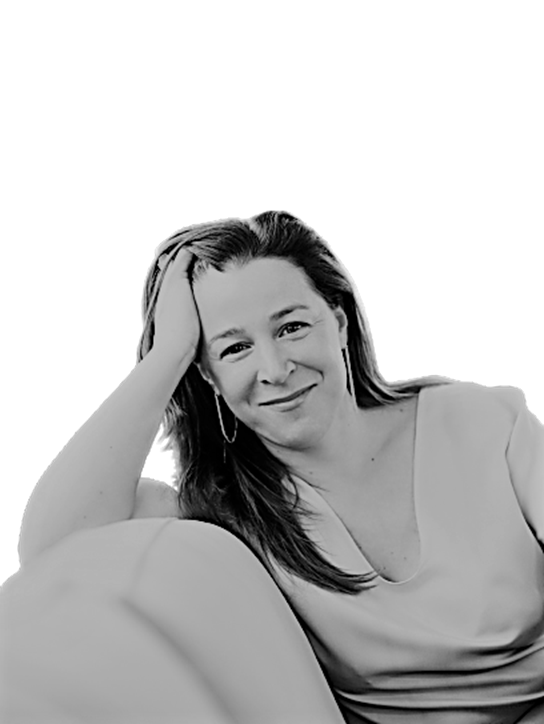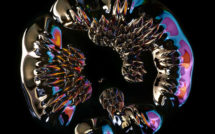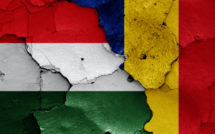
Creating Networks with Established and Displaced Writers in Germany & Beyond: An Interview with Annika Reich

At the international level, there are several organizations that support displaced writers and journalists. They include PEN centers in more than one hundred countries, the PEN “Writers in Exile” program, and ICORN, the International Cities of Refugee Network that supports journalists and writers who face persecution and arrest.
Smaller organizations at the national and European level include the Berlin-based initiative Weiter Schreiben(writingon.now). It has been highly successful in developing support networks for displaced writers in Germany and is beginning to expand to other European countries as well. Weiter Schreiben was started in 2017 and is part of the non-profit organization Wir Machen Das (wecandothis.now or wearedoingit.now).[1] This NGG grew out of a large network of women working in the arts and culture, academia, journalism and public life and was founded in 2015 in response to the large influx of refugees into Germany and other European countries.
Weiter Schreiben operates on the principle of approaching refugees not as victims who are dependent on the help of others but as equal partners with their own expertise, histories, and perspectives. Funded by a range of non-profit organizations and cultural foundations,[2] Weiter Schreiben is the brainchild of Annika Reich who is also co-founder of the umbrella organization WIR MACHEN DAS.
Reich conceived of the initiative as a tandem project that establishes professional connections between writers who escaped war-torn or crisis areas (most prominently Syria but also Afghanistan and Iraq, among other places) with established German-speaking writers some of whom experienced migration or displacement earlier in their lives as well (e.g., Saša Stanišić, Lena Gorelik, and Olga Grasjnówa). Today a total of fifty writers are participating in these collaborative partnerships. The initiative’s objective is to foster multidirectional networks instead of one-directional assistance.
—Friederike Eigler for EuropeNow
EuropeNow On your website, you describe yourself as a writer and activist. Can you comment on how these two roles complement each other or at times compete with each another?
Annika Reich Upon founding WIR MACHEN DAS in 2015, it was my plan to pause my creative writing for a year to make time for the NGO and related projects like Weiter Schreiben. In the meantime five years have passed.
Fortunately, I did not know what I was getting into at the time. If someone had told me that I would not write a novel for the next five years I would have probably decided against getting involved in the NGO—and I would have missed one of the most rewarding opportunities of my life! Having never worked on anything like this before, I had underestimated the investment of time and effort it takes to build up an NGO from scratch. We were under immense time pressure since the projects were already commencing while we were still securing funding and building the infrastructure. Initially, this infrastructure was provided by several women in a network that I had started together with the artist Katharina Grosse (comprised of artists, journalists, and academics) and, literally, by the private space of my kitchen table.
Until 2015, I had lived a relatively quiet life shaped by reading, writing and teaching at a range of universities and academies. Before founding WIR MACHEN DAS, I was still able to devote time to my creative writing while also doing smaller projects on the side, for instance contributing to the feminist column (“10nach8”/ “10after8”) for ZEIT Online.
Once WIR MACHEN DAS was founded, I no longer had the luxury of taking the time to retreat into the mental space necessary for creative writing. The encounter with displaced people from war-torn or crisis areas was mentally and emotionally taxing and made it impossible, at least for a while, to combine my work as an activist with my creative writing—even though I continued to feel the need to engage in both.
This changed only earlier this year. I have now found ways to combine my “noisy” life of activism with my “quiet” life of writing. In each of these worlds, there are daily surprises, since I never know what challenges I will face when I get up in the morning. And I have come to recognize how my involvement in both worlds overlaps and can be mutually beneficial. As an author and an activist, I use the power of imagination to create new worlds. On the one hand these imagined worlds shape what I write; on the other hand, I actively create spaces to realize these new worlds. Furthermore, my activism helps me to stand up for my beliefs in my writing and, conversely, my writing brings reflection and depth to my activism. Ultimately, I view both aspects of my life as building bridges.
EuropeNow What do you see as the major accomplishments of the two initiatives you helped found, WIR MACHEN DAS and Weiter Schreiben?
Annika Reich The main success of WIR MACHEN DAS is that we built an international network that includes some participants who have experienced displacement and some who have not but who collaborate at all levels in a multilingual and transdisciplinary manner. Specifically, the initiative has enabled approximately one hundred women and men working in the field of the arts and culture to find new opportunities to work in their areas of expertise in their new country of residence. At the same time, their involvement has benefitted the general public: instead of talking about those who had to escape their homelands, they are able to share their own perspectives.
With respect to Weiter Schreiben, I see the main accomplishment in the fact that about two thirds of the twenty-five displaced writers who have participated in tandems over the past three years have been successful in entering the German literary market by publishing books, participating in readings and festivals, and receiving grants and literary awards. I am convinced that the tandem principle was key for this success, that is, the pairing of displaced writers with established writers in Germany. This collaborative approach encompasses personal, artistic and intellectual exchanges and is a key component not only of Weiter Schreiben but of all of our initiatives, including the administrative structure of the umbrella organization WIR MACHEN DAS.
In other words, we do not start with the premise of having “already arrived” but instead we seek to meet displaced writers and artists half way and then walk together with them into multiple directions.
EuropeNow By any measure, Weiter Schreiben continues to be very successful (with respect to funding, public interest and events, etc.) and you just celebrated the initiative’s third anniversary! But in recent months there are also new challenges, especially in light of the Corona pandemic. Can you comment on some of these challenges and how the organization responds to them?
Annika Reich From the very onset of the pandemic, it was our priority to continue to support all of our employees and participants. For that reason we had to restructure all projects that rely on in-person events and in-person encounters. Fortunately, our sponsors went along with these changes. For instance, instead of holding community and cultural events we started an essay competition and online interviews with participants. And instead of public readings with tandem authors we initiated online correspondences between them. Just before the March 2020 lockdown in Germany, we had started a series of letters and podcasts published online where authors reflect together on “(W)Ortwechsel” (change of language and place)—as it turned out, a perfect fit for the current situation.
Because many of our projects have had a strong digital component all along, we have managed fairly well so far. Of course, what we dearly miss are the in-person encounters with the writers and artists themselves.
EuropeNow The professionally maintained website publishes poetry and fiction in the original language (in most cases Arabic) and in German translation. These literary texts are always presented in conjunction with artworks by displaced artists. How did the prominent role of the visual arts come about?
Annika Reich At first, this was a pragmatic decision: We were aware of the fact that the visual dimension is instrumental for digital platforms and social media. A poem will generate far more attention when accompanied by an image. But then our editors responsible for the visual layout began to establish an impressive network of fine artists and photographers from areas of conflict—not unlike the network of writers, except that in the case of the visual artists it is more loosely organized and lacks the tandem component. As a result of this network, the presentation of artworks in combination with poetry or fiction has become an integral part of the website. Also, right before the pandemic the first exhibition of some of these artworks opened in Berlin (sponsored by the Mercator Foundation). We definitely plan to continue to work with displaced artists in the future.
EuropeNow Could you describe recent attempts to expand the reach of Weiter Schreiben to other European countries? Are there any plans to include English translations of Arabic texts to make them accessible to a larger readership?
Annika Reich Yes, a number of individuals and organizations from across Europe have expressed interest in collaborating with us. Right now, we are in the process of founding “Weiter Schreiben Schweiz” in Switzerland and we are working with the most important Swiss literary festival (Solothurner Literaturtage) and also with the association of writers in Switzerland. And, if the pandemic allows it, we plan to start a series of events in Austria and in Poland. Furthermore, we are in conversation with an initiative in England that works with writers from Afghanistan. If we are able to collaborate with them, we will for the first time also make available texts in English translation on the Weiterschreiben website, that is, literary texts would then be accessible in Arabic, German and English.
However, the focus of Weiter Schreiben will continue to be on displaced writers who now live in Germany and their ability to network here and enter the literary market here. For these efforts to succeed, we need to build trust and expertise on both sides—and that requires time and effort and (virtual) proximity.
Annika Reich author of novels and books for young adults, is founder of the initiative Weiter Schreiben (2017) and co-founder of the umbrella organization WIR MACHEN DAS (2015). Among other activities, Reich is also a co-founder and regular contributor to the ZEIT online blog “10nach8” that combines literary with political and polemical commentary.
Friederike Eigler is George M. Roth Professor of German at Georgetown University and has widely published on German literature and culture. A special issue on “Contemporary German Literature and Europe”, co-edited with Anke Biendarra, is forthcoming in Colloquia Germanica. She is also the editor of Gegenwartsliteratur/A German Studies Yearbook.
References:
[1] The translation “writing on” is taken from Sally McGrane’s article in the New Yorker (“Writing again, after fleeing Syria”, July 13, 2018). The first translation of wirmachendas.jetzt (wecandothis.now) is mine. The second one (wearedoingit.now) is the official translation on the website but does not capture the urgency that is communicated by the German name.
[2] Funding sources include Deutscher Literaturfond, the Fondation Jan Michalski and the Allianz Kulturstiftung. https://weiterschreiben.jetzt/weiter-schreiben/ueber-uns/
Published on August 4, 2020




